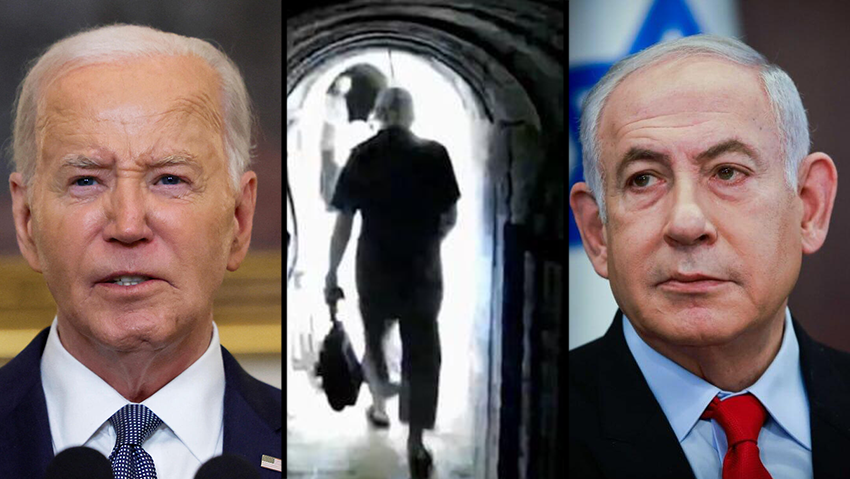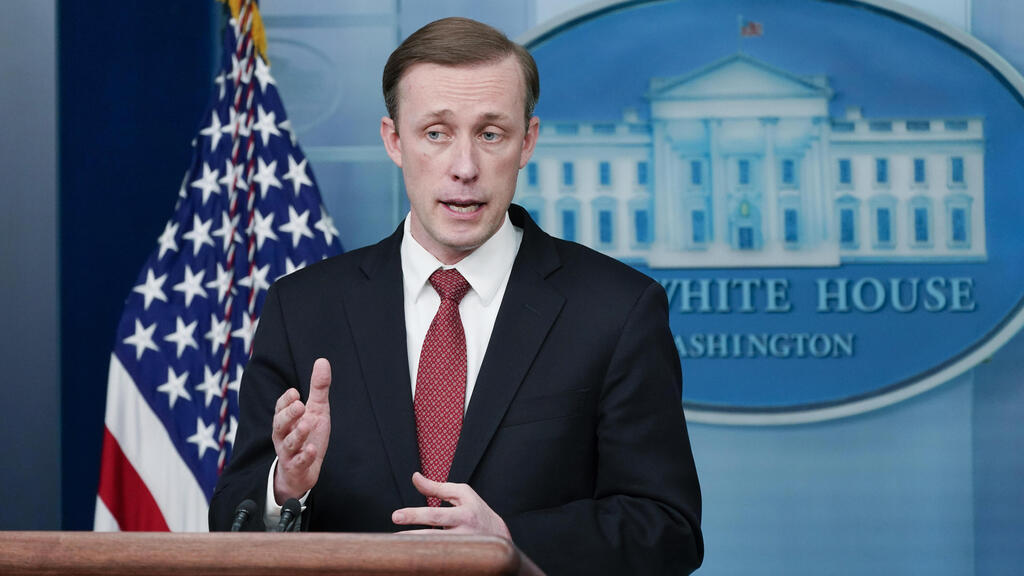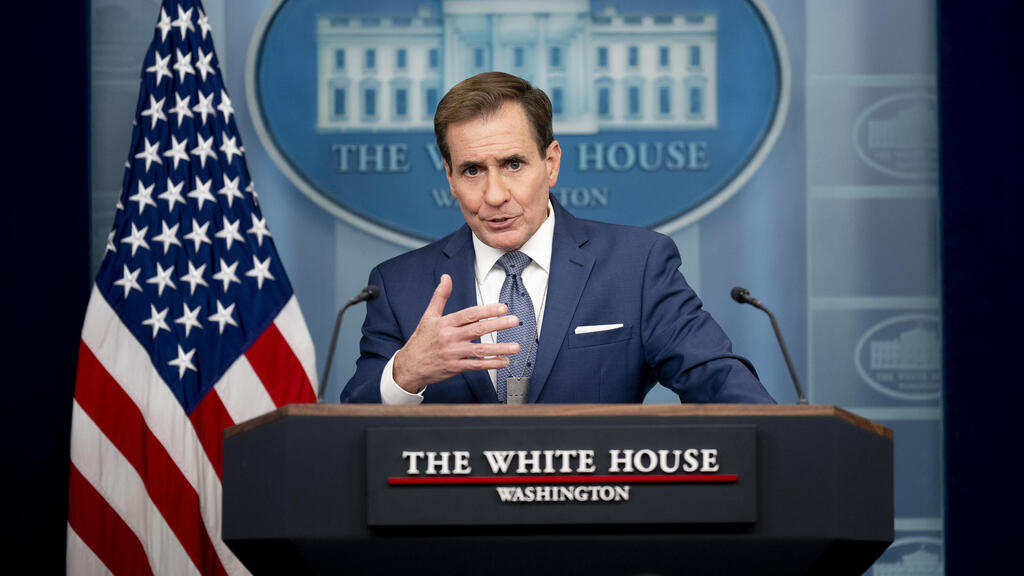Getting your Trinity Audio player ready...
Amid ongoing efforts by the U.S. to bring about a hostage deal that would end the war in Gaza, U.S. President Joe Biden on Tuesday walked back on his comment published the same day in a Time magazine interview in which he said there were reasons to conclude Prime Minister Benjamin Netanyahu was intentionally prolonging the war in Gaza for his personal political purposes.
"He's trying to work out a serious problem he has,” Biden said shortly after the interview was published. The American president made the remarks at the White House after a reporter asked him if he believed Netanyahu was "playing politics with the war." Biden responded: "I don't think so."
3 View gallery


Joe Biden, footage of Hamas leader Yahya Sinwar, Benjamin Netanyahu
(Photo: REUTERS/Evelyn Hockstein, IDF Spokesperson's Unit, Haim Goldberg/Flash90)
Meanwhile, U.S. National Security Advisor Jake Sullivan met with the families of American hostages held by Hamas on Tuesday and noted Hamas hasn’t yet responded to the proposal for a deal. However, even if they respond positively, "the U.S. will know how to deal with Netanyahu." This is Sullivan's ninth meeting with the families since October 7.
From the briefing presented to the families, it appears that pressures for a deal are being applied on several levels - Israel's military pressure and international ones. The U.S. is in talks with Qatar and Turkey, and Biden's special envoy, Brett McGurk, will be returning to the region. The families asked for a meeting with CIA Director Bill Burns but were told he wasn’t in Washington, hinting he was on a mission related to negotiations for the deal.
The U.S. and mediators are trying to influence Hamas as well. Sullivan's words suggest the current dynamic is positive, but if a deal does not materialize now, the process will need to restart, which could mean a death sentence for the hostages.
Sullivan stressed to the families that the framework Biden presented is the same as the one proposed by Prime Minister Benjamin Netanyahu, which was approved by Israel’s War Cabinet.
Rubi Chen, the father of hostage Itay Chen, who was present in the meeting, said: "I don't see any other alternative than having a deal now." Sullivan also raised the issue of humanitarian aid, saying that increasing it is in the interest of anyone who wants a deal to happen. He noted that more trucks carrying goods are entering Gaza than with aid, and more aid needs to be brought in.
Meanwhile, the U.S. is seeking to present a draft resolution to a vote in the UN Security Council later this week. The resolution calls for Hamas to immediately and unconditionally accept the hostage deal and notes the importance of both parties adhering to the terms of the agreement once accepted. The move aims to pressure Hamas but also prevent Israel from resuming fighting after the first phase of the proposed deal.
Leaders of the Group of Seven (G7) major democracies said in a statement that they "fully endorse and will stand behind the comprehensive" cease-fire and hostage release deal. The foreign ministers of Saudi Arabia, Jordan, the United Arab Emirates, Qatar and Egypt said it was important to "deal seriously and positively."
Biden believes the cease-fire deal on the table is the best chance to get hostages out of Gaza and end hostilities, the White House said earlier on Tuesday. The United States will continue to work with Israeli Prime Minister Benjamin Netanyahu to try to get the proposal over the finish line, spokesman John Kirby said.





